Unconscious Abilities of the Mind
Our brain and overall consciousness has an uncanny ability to work through data, connect relevant pieces, and figure things out. Most of this work is done without any conscious involvement.

Source
Consciousness as a whole includes the active conscious and the passive unconscious processing capacities that allow us to be "with-knowledge", i.e con-science, con-scious, con-sciousness. Much of the unconscious and subconscious processing runs and motivates our behavior in life.
Can we become more consciously aware of the unconscious/subconscious processing that affects what we do? Yes. Here are some aspects of our unconscious selves that we can consciously become aware of:
- Automated Decision-Making
- Predicting the Future
- Running on Autopilot
- Decoding Social Signals
- Keeping Track of the Body in Space
- Thinking While We Sleep
Automated Decision-Making
Ever reach a decision, or finish some work, after you distract yourself for some period of time, whereas prior to that you had an inability to arrive at a conclusion or do the work? Unconscious thoughts can process information differently than the limiting concentrated focus of working memory. The unconscious can process more information at once, and feed it back to the conscious awareness.
We can prime our consciousness, such as when we want something done, a decision, work, etc., and then it processes "under the hood" in the background while we do something else. It's like a background process working on your computer. This doesn't mean using the unconscious alone is a dependable way to arrive at sound conclusions. You still need to verify your "intuitive" processing that you're still in the dark about how you arrived at that conclusion.
This large information processing is more suitable for blind trust in creative tasks that don't rely on important complex decision-making that needs to be justified rationally. We can take the imagery and thoughts without much worry, as they don't conflict with our overall goal-oriented frontal lobe decision processing. If you get stuck thinking about something, take a break, then come back to it, and you might get some better insight into resolving the issue.
Predicting the Future
Ever expect a sound to come when you drop a cup? Or expect something else to happen? We take in more information than we ever consciously process. The brain makes predictions about future outcomes based on the new information coming compared to the old information we already have.
We are often one step ahead of our senses. We also predict sounds, words and meaning. A garbled word may not be easily decoded and understood. But if you hear a garbled word with a subtitle, you can more easily recognize what the garbled word means in the future. We also make prediction based on emotional signals, not only environmental. We can be unconsciously influenced to react to things. Jumping away at a moving falling stick can be triggered due to unconscious valuations of a threat from an animal, such as a snake. Something could also make a sound we're familiar with and make us automatically react to it.
Repeatedly making incorrect inferences about what is happening automates the predictive analysis process. If you hear a song but misinterpret the lyrics, each time you hear the song you keep repeating the same wrong lyrics. Apart from the lyric errors, there are more egregious errors such as stereotyping and prejudices. Biases and discrimination develop that have us incorrectly treat others. Without habits and predictions though, we would have to relearn many things and always be expending cognitive effort to repeat processes and learning.
Running on Autopilot
Ever drive somewhere and forget the past few minutes of driving? Cook something and forget the past few minutes? Read something and forget what you just read?
Autopilot can take over many tasks we do regularly and are habituated with. We can even do these things unconsciously while thinking about others things consciously. But, these unconsciously processing skills that are on autopilot need to be learned beforehand to become a habit and automated.
When we first do something, the prefrontal cortex that plans complex tasks communicates with the striatum to enact movement. Over time, loops form to automate certain actions, rather than process them as new circuits. These loops with memory allow us to engage in the actions without thinking about them over and over. This is how "practice makes perfect" works.
When we do this, we have spare conscious processing power for other things. The downside is that any through or behavior can become a habit and solidify itself rigidly as a loop. This is why habits are hard to break, but easy to form. Not a problem for good habits, but is a problem for bad habits. If we don't really choose to do something, then we are losing ability to choose. The best way to deal with habits, is to become aware of them. Focusing attention on them will help us resist the autopilot call to action.
Decoding Social Signals
Ever get a feeling about someone? Don't trust them? Sleezy? Or "fall in love" with someone at first sight? We judge other people's competence, confidence and honesty from our first interactions with them. In general behavior of others, our assessments and judgments tend to pan out and stay true in the long run. This is also accurate for judgments about sexuality or economic success and political affiliation. These aspects of ourselves can often be discerned through minimal social interaction.
Often people judge merely on appearances. Many people pick political candidates based on the first visual impression they give, and it only takes 1/10th of a second to make. That often saves us a lot of time in the long run, despite it being prejudicial and not always accurate. What makes a face people can trust? We are blinding ourselves by our focus on visual appearances, masks masquerading as something they are not. We have little choice in the conclusions we draw. They can easily lead to prejudices that are justified as "intuition" when they are actually unconscious biases.
One trick to get people to like you and listen to you is mimicry, which NLP teaches as a way to influence others. Most of us often mimic the body language of others in an unconscious capacity. If there is a delay in the mimicry, most people are unaware they are being copied and influenced through imitation of their body language.
Keeping Track of the Body in Space
We know where our limbs are at all times (even if we unfortunately lose them, we can think we feel them there). This is proprioception, an unconscious awareness that results from constant communication between the brain and body. This is what allows us to have a physical sense of us-ness, along with the normal sense of touch.
Just as touch can relate ourselves to other objects, proprioception is understood as our unconscious processing of information relating what is going on inside the body. We get a sense of where our body ends and the rest of the environment begins.
There is a fake rubber hand experiment where someone's hand is hidden, and a fake hand is shown as their hand. Rubbing both their hidden hand and the shown rubber hand has the brain associate the rubber hand as their own hand, and people start to think they are feeling the rubber hand.
The Rubber Hand Illusion - Horizon: Is Seeing Believing? - BBC Two
Since proprioception is based on actual sensations like the regular sense of touch in our whole body, it can be missing in areas due to nerve or brain damage. Ian Waterman was a man with nerve damage from the flu. He lost the natural automatic ability for certain muscle movement, but he was able to still move those muscle by consciously exercising full control over those muscles. The unconscious processing was shot, and his conscious effort had to take over to run parts of his body.
Thinking While We Sleep
Ever wake up before your alarm in the morning? A study in 1999 showed that waking people up 3 hours before they expected, showed no spike in the stress hormone adrenocorticotropin. While others who were woken up 1.5 hours prior to their scheduled expected time, showed adrenocorticotropin levels had already risen prior to them being woken up. This indicates that unconscious processes are already prepping the body to wake up when we get closer to the expected wakeup time. The mind or consciousness was primed with a time to wake up. This priming went into the subconscious or unconscious programming of our automated behavior.
The meaning of words is also processed during sleep. A 2014 study showed how people who have been trained to push a button with their left or right hand, were still engaging in the same electrical activity during sleep when the training behavior was stimulated. This certainly makes sense as a useful evolutionary ability to survive. Monitoring our environment is crucial. Otherwise, we are left vulnerable during sleep. But while these responses to trigger words for automated responses can work during some sleep, it goes offline during deep sleep. Acuity of our environmental awareness goes down as we go deeper into sleep, which does indeed leave us vulnerable.
Conclusion
Much of what we do is unconscious and saves us time and energy. Some of the things we do automatically, are not for our optimal benefit. They were learned through repetition and now they are ingrained in our unconscious. We can be more aware of what we do, be mindful, and notice our unconscious manifestations in order to change them. We can change much about ourselves, but that requires time and attention to work at and create a new reality for ourselves.
References:
- Decision-making
- Prediction
- The Autopilot
- Social Signaling
- Proprioception
- If You Always Wake up Right before Your Alarm Goes off, There’s a Scientific Explanation Why
- New scientist, issue 3093
Thank you for your time and attention. Peace.
If you appreciate and value the content, please consider: Upvoting, Sharing or Reblogging below.
 me for more content to come!
me for more content to come!
My goal is to share knowledge, truth and moral understanding in order to help change the world for the better. If you appreciate and value what I do, please consider supporting me as a Steem Witness by voting for me at the bottom of the Witness page.


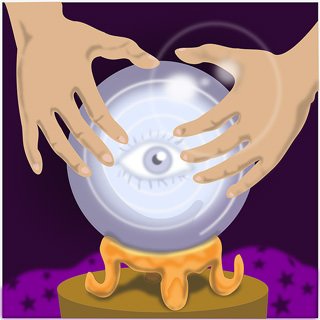
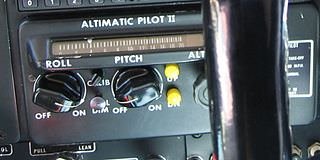
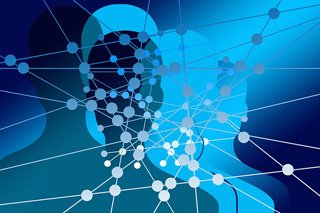
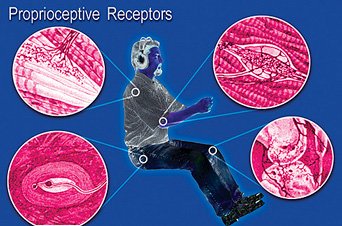

The human mind is always an impressive topic to read about. How the mind can adapt to almost any situation is truly remarkable.
I drive quite a bit, usually about 25-30k miles per year. I have had this happen to me several times on long trips and it scares the crap out of me every time. Here I am piloting this 4 thousand pound machine at 70 Mph down the road and don't even remember the last 5 miles. In a way I think we rely on the unconscious mind a little too much at times. Todays electronic and sensory overload leads to even more distraction.
This Auto-Pilot usually effects me most when looking at the time, then instantly forgetting what time it is. Like my conscious mind just passed it off to my sub-conscious and left me out of the loop entirely.
I also drive a lot although not that much. I too sense myself going through this auto pilot and it’s remarkable. I got nearly half way through the drive and realized I didn’t remember a thing about the last 15 miles. Was scary but at the same time remarkable because my subconscious guided me, stopped and accelerated without me having to think about it.
@cmplxty
It's just habituation. You can "sense your autopilot" at anytime by purposefully and intentionally bringing your attention to whatever it is you're doing automatically.
Have you ever been listening to music while doing something else and eventually the music becomes background noise you forget is even there? That's habituation. Have you also suddenly been aware of it again if a new song comes on the radio or the announcer comes on or it changes in some way? In that case, it's your subconscious automatically bringing your consciousness back to it to alert you to the change. (As it's been monitoring the music even as you haven't been aware of it.) However, it's still possible to intentionally bring your attention back to something that's been habituated.
Do you even walk or type? :) Think about it.
I've been making a 45min commute for 25 years and have also experienced on occasion coming to my exit and not remember the drive. It's pretty scary, if you, me and others experience this, how many more driving are also experiences it. It would be interesting to be able to know how much this contributes to accidents while driving.
I'm sure it contributes to some accidents but probably not in the way I'm assuming that you think. Autopilot is normal and you tend to only remember what you pay attention to. You wouldn't believe the things you do during a normal day that you don't remember / don't know you even did.
@chris.geese
Hi, I'm Shawn. Nice to meet you.
Spoiler: It's a fun thing to screw with, y'know, if you ever get tired of reading.
Err.... this is so vague as to be meaningless. #justsayin'
At what point would this reliance become "too much"?
How so?
How are you affected?
Delegating driving, a complex task on its own, to your subconscious is apparently a very common thing. That’s frightening. Going down the road wondering if the other drivers are focused or worrying about their next social media post is what I’m concerned with now. That to me, is too much. Because now I’m distracted wondering if the car getting ready to turn across my intended path is focused.
As I just mentioned, with even a complicated task like driving a vehicle it’s amazing how many times I’m distracted. Be it thinking about something I need to do when I stop, send a text, write an email, take a note, Etc... not to mention the passengers in the car playing games, engaging on social media talking about snapchats, text messages. There’s just a lot of external distractions that feed into this autopilot mechanism.
As stated the autopilot I notice the most is when looking at the time. How many times have you looked at a clock only to have to look again right after. Is this a force of habit? Should I know what time it is, is my subconscious aware of something I may have forgotten. What caused me to look at the time just to instantly forget what time it is?
LOL, yup. Time passes by quickly when we're not focusing on the awareness of time and just into something. If we focus on the progression of time, then its in our awareness and its slow to be aware of time passing.
The mind is an unbelievable machine. It will take a really long time for anything in AI to catch up to the complexity of what our brain does on a daily basis.
One of my professors in college studies cognition in grad school and his group came to understand that our brains can only do serious work for 26 minutes at a time then we need a break or our comprehension suffers. It was a great class because we took a 5 minute break each class to allow our mind to refresh and get back into the groove.
26m break? So you can't read on and on more than 26m or else you comprehend it less and less?
Yes essentially. He made the hypothesis that we can’t keep our attention span for a great length of time otherwise we lose it and our productivity goes down. They wrote a paper on it I will see if I can find it but their findings were essentially that our attention is limited to 26 minutes when doing something intensive such as learning in a classroom, working numbers (he’s also a statistician so this was pretty key to a good portion of his life) and other serious mind focusing activities. Obviously there are anomalies and deviations from this but I believe he was relating it to students, office workers and others who would need concentration for mundane but important things.
They also tried to find the optimum length of time for a break and it was 7 minutes I believe; not too long but not too short. Enough time to allow the conscious mind a break.
It does make sense to a certain extent, not sure about the time and recovery. So a 5 second break is enough? 1 minute? Does it have to be the same amount of time?
You really need to google Dual Process Theory. Just sayin'.
I dig this and will write a much longer comment after I wake up.
EDIT: Also google Habituation
Cool, didn't know there was a name, Dual Process Theory. It's how I have come to understand consciousness myself in observing how humans operate.
Habituation is common indeed, even akin to reverse hallucination, where we stop feeling the socks on our feet, chair we are sitting in, foot on floor, pants on, etc. Lots of habits form and we run them automatically, unconsciously, unthinkingly. I refer to conscious thought as thinking proper (active), while unconscious thoughts as not thinking proper (passive).
Another excellent post. I'm amazed at how prolific your writing is and the number of varied topics.
If you have a chance, watch the documentary I AM. It is simply incredible. Not only what the mind can do unconsciously, but what the heart does as well...
(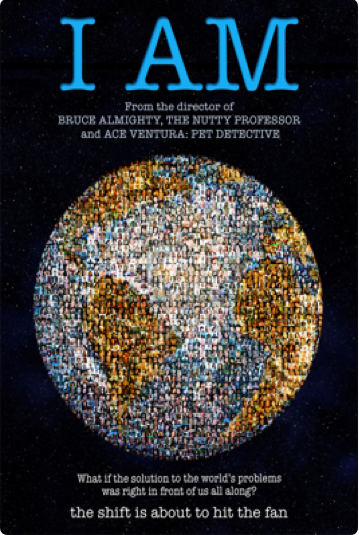 )
)
Believe it or not, it has often been discussed that it is the effect of Mind Vibration. Our minds have amazing abilities. Our thoughts are like a Mobile that can send SMS that can be read by the intended person. As we already know to send SMS, we have to write a message to be conveyed, phone number dituju, and of course have a plane HP and pulsanya.
So can the mind we send to people we want to go as a message. In the world of sales, it is very important to send a sales message in secret before the sales presentation is done. The goal, once the message is sent, the presentation becomes easier because the person is mentally ready to meet.
What message can we send? Of course the message for potential buyers to trust the seller so that prospective buyers will listen carefully and comfortably to listen to the presentations of the seller.
HOW:
Imagine the face of the person you are about to Vibrate - If you still find the shadow black and white, bring out the colors.
In your shadow, smile and see a potential buyer smile back at you - Tell him, "Sir / Mom (name mentioned), I came to you - I came to GIVE instead of asking - I am part of SOLUSI, not part of your problem. to me, and listen to my words - Repeat this vibrational process of mind until you find the person's face more clear.
When is the right time to do this? Do it when the conditions of prospective buyers in comfortable and relaxed conditions, usually the morning before he did work activities and moments after coming home from work when prospective buyers are resting. In the two conditions above, the person's mind is stronger and more sensitive to capture the message we send. And the same as SMS, the person will "read" your message but to reply, it's up to who received the message.
Good luck!
That last one happens to me all the time. I sleep with a problem in mind and i usually either wake up mid night with a solution on i have one by morning
That's from a post I made, I don't know how you choose topics and I know it has nothing to do with this but I would like to read your opinion about the gentrification of steemit and ''digital neighborhoods'' in general, thanks!
Good article share . Thanks
@mdsayhammia - You may not realize that "good art" is considered to be spam, you used 40 similar phrases in your last 100 comments, and the Steem Sincerity API shows a 51.10% spam score. Learn why this is spam and a few better ways to earn the support of the community when commenting.
@krnel - You can remove this comment and everyone can whitelist me from appearing in future posts.
Good article share . Thanks